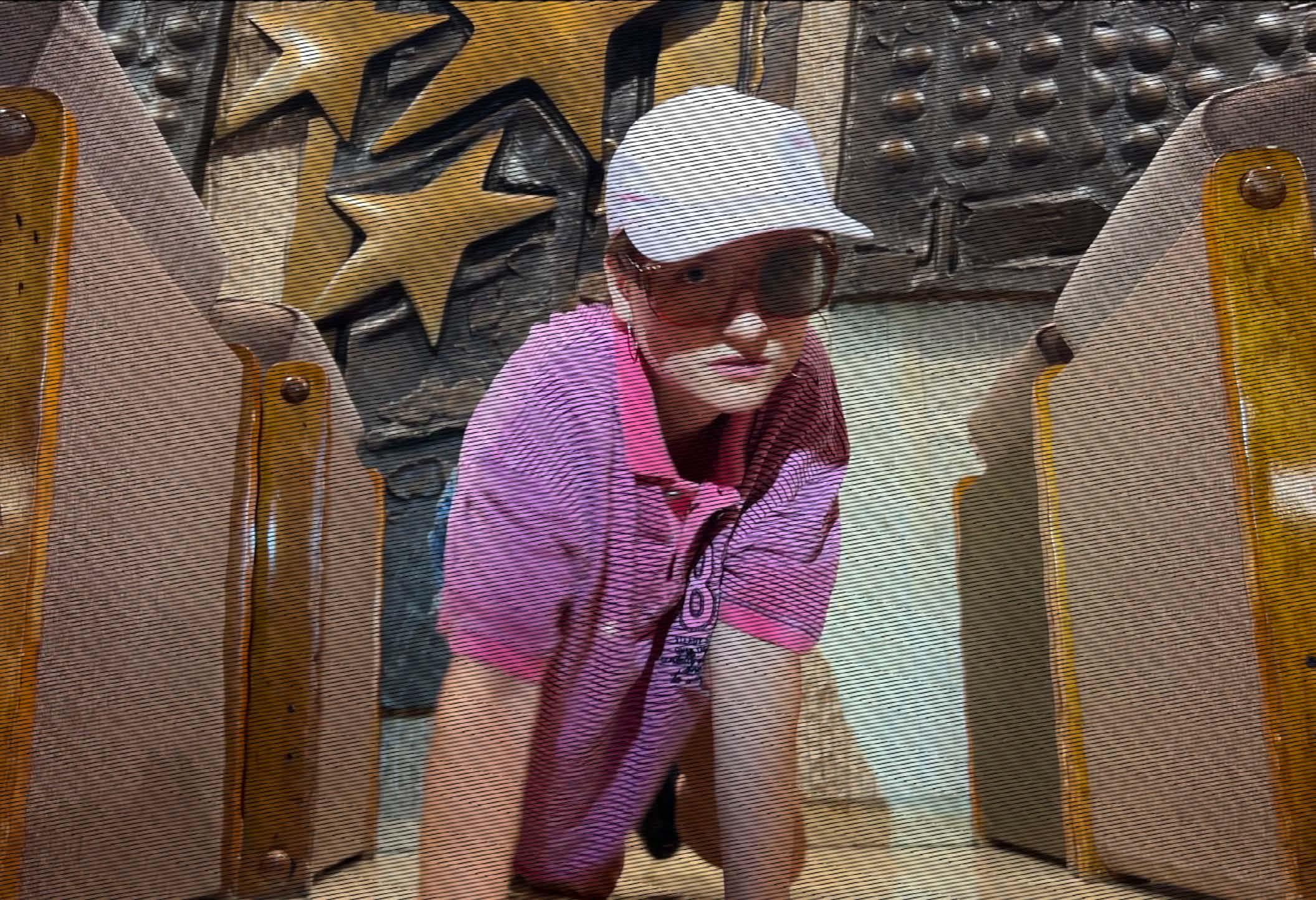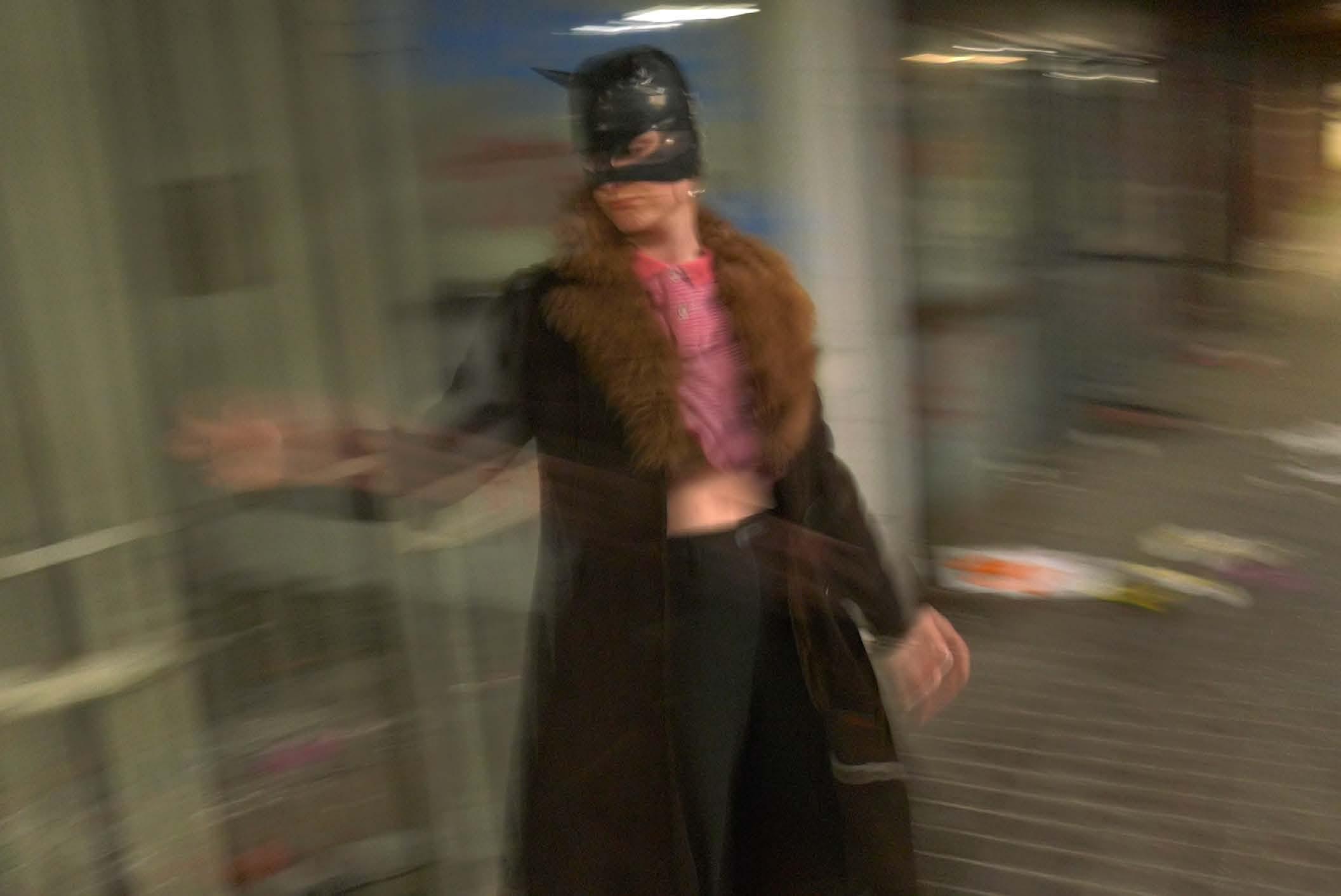
3 minute read
Barbora Ilič
Barbora Ilič (* 1993) vytváří videa a prostorové instalace, pro jejichž celkové vyznění a emocionální náboj je nezřídka stěžejní hudební složka a lehký podtón (sebe)ironie. Důležitým motivem v její tvorbě jsou kulturní, společenské a politické události a systémy v zemích bývalé Jugoslávie, zejména Srbsku, kde umělkyně žila. Napříč jejími uměleckými výstupy lze sledovat práci se specifickou symbolikou a estetikou oblasti tzv. Balkánu a také kritickou reflexi romantizované nostalgie po 90. letech minulého století jakožto času svobody a proměny spojené s nadějí ve světlé zítřky, než se mohly naplno projevit dopady nového společenského uspořádání s dominantním vlivem kapitalismu.
Snové a uvolněné „spojení nespojitelného“ v podobě kombinování popkulturních i čistě vizuálních odkazů na místa a situace, které autorku inspirovaly, se zhmotňuje v různých podobách: ať už jde o její vlastní umělecké projekty, výstavy, jichž je kurátorkou, nebo prostředí pro návštěvnickou interakci na rozmezí umění a zábavně stráveného volného času s přáteli, jako je tomu v případě baru/kulturního prostoru SPLIT, který spoluzaložila v roce 2019 v pražských Holešovicích a jehož existenci předčasně ukončil dopad restrikcí v době koronavirové krize. V roce 2022 pak spoluzaložila v prostoru někdejší galerie SOLO offspace nezávislý brněnský výstavní prostor Cejla. Cílem Cejly je vytvořit kurátorský kolektiv a platformu, která poskytne nový výstavní a vzdělávací prostor zaměřený především na studenty*studentky i čerstvé absolventy*absolventky uměleckých a uměnovědných oborů. Nově je Ilič také součástí kolektivu Ugly Brno, který se zabývá gentrifikací města Brna. Diplomovým projektem Barbory Ilič je krátký autofikční film
Barbara: The Weltschmerz Musical (2023). Skrze postavu cizinky-umělkyně s příznačným jménem Barbara poukazuje na intimní úroveň fenoménů, které utváří vztah tzv. Západu k tzv. Balkánu. Ten je v tomto případě zastoupen exjugoslávským prostorem, a to zejména nynějším Srbskem. Práce se tak skrze téma jugonostalgie dostává k otázkám dekolonizace vlastní identity, k reparativnímu obratu v umění a problematice toho, k čemu se vůbec můžeme ze své, téměř vždy nějakým způsobem privilegované, pozice vyjadřovat.
V roce 2022 byla nominována do soutěže Jiné vize CZ festivalu PAF Olomouc, který si dlouhodobě klade za cíl vytvářet povědomí o českém pohyblivém obraze: hraničních formách na pomezí animace, experimentálního filmu a videoartu. Za svůj krátký snímek Platonic Breakup (2022) získala cenu diváků. Svou tvorbu Ilič doposud představila především na skupinových výstavách a projektech v rámci české a srbské nezávislé galerijní scény. Před studiem umění se věnovala společenským vědám, bakalářský titul získala na Katedře sociologie Filozofické fakulty Univerzity Karlovy v Praze a poté pokračovala ve studiu nových médií na Ústavu informačních studií a knihovnictví na téže univerzitě. Je absolventkou Ateliéru videa FaVU VUT v Brně u Martina Mazance a Jana Šrámka.
Barbora Ilič (* 1993) creates videos and spatial installations in which the overall impression and emotional charge are often determined by a musical component and a slight undertone of (self-)irony. Important motifs in her work are cultural, social and political events and systems in the countries of the former Yugoslavia, especially Serbia, where the artist has lived. Throughout her artistic output one can trace in her work the specific symbolism and aesthetics of the Balkan region, as well as a critical reflection on the romanticised nostalgia for the 1990s, seen as a time of freedom and transformation, coupled with hope for a brighter tomorrow, before the effects of the new social order with the dominant influence of capitalism could fully manifest themselves.
The dreamy and relaxed “fusion of something that cannot be connected”, in the form of combining pop culture and purely visual references to places and situations that inspired the artist, materialises in various forms: her own art projects, exhibitions she curates, and environments for visitor interaction at the intersection of art and fun leisure time spent with friends. Such is the case of the bar/cultural space SPLIT, which she co-founded in 2019 in Holešovice, Prague, and whose existence was prematurely ended by the impact of restrictions during the coronavirus crisis. In 2022 she co-founded the independent Brno exhibition space Cejla in the space of the former SOLO offspace Gallery. Cejla’s aim is to create a curatorial collective and platform that will provide a new exhibition and educational space aimed primarily at students and recent graduates in art and art history. Ilič is also part of the Ugly Brno collective, which deals with the gentrification of Brno.
Ilič’s diploma project is the short auto-fiction film Barbara: The Weltschmerz Musical (2023). Through the character of a foreign artist with the characteristic name Barbara, she points to the intimate level of the phenomena that shape the relationship between the so-called West and the so-called Balkans. In this case, the latter is represented by the ex-Yugoslav space, especially by the present-day Serbia. Through the theme of Yugonostalgia, the work looks at the questions of the decolonisation of one’s own identity, the reparative turn in art and the issue of what we can even comment on from our usually privileged positions.
In 2022 Barbora Ilič was nominated in the Other Visions CZ competition at the PAF Olomouc festival, a showcase that has long aimed to create awareness of the Czech moving image: border forms between animation, experimental film, and video art. Her short film Platonic Breakup (2022) won the audience award. Ilič has so far mainly presented her works in group exhibitions and projects within the Czech and Serbian independent gallery scene. Prior to studying art, Ilič studied social sciences, earning her bachelor’s degree at the Department of Sociology at the Faculty of Arts of Charles University in Prague. She then went on to study new media at the Institute of Information Studies and Librarianship at the same university. She graduated from the Video Studio at the FFA BUT under Martin Mazanec and Jan Šrámek.











